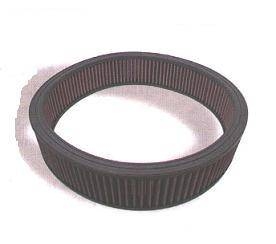
Air filters are equipments attached to the car's engine which help protect it from dirt and other debris. Filters are made of any number of material such as paper, cotton, or gauze. Certain filters, such as K&N filters, are made specifically with cotton and gauze and are considered more effective than most filters. K&N filters are affixed between aluminum wire screens which allow more air to flow through the filters, enhancing the engine's performance.
Air filters perform important functions to the engine. When the engine is operating, it picks up and circulates air that also circulates surrounding dirt or debris. Dirt and debris can damage the engine, therefore air filters protect engines. Air filters are sort of like colanders: as the dirt and other damaging debris is picked up by the air, ridges in the filters collect and trap the dirt, preventing it from entering the engine. At the same time, the air is allowed to enter the engine, cleansed of any dirt or debris that might damage the engine. In other words, filters act as a cleansing system that removes any particles or materials that might harm the engine and affect its performance.
While air filters do an adequate job of filtering dirt and other particles from entering the engine, they are not 100% effective. This is why, over time, the engine's performance wears down and needs to be repaired or replaced. Air filters do prevent 99% of dirt from passing into the engine. Still, over a long period of time, dirt and other particles accumulate, clogging and blocking the air filter passages. Once air is blocked from entering the engine, the engine's effectiveness and performance are affected. That is why it is necessary to change air filters every once in a while to prevent air blockage. Some air filters, such as K&N, are more effective because they allow more air to flow into the engine, thus enhancing its performance.